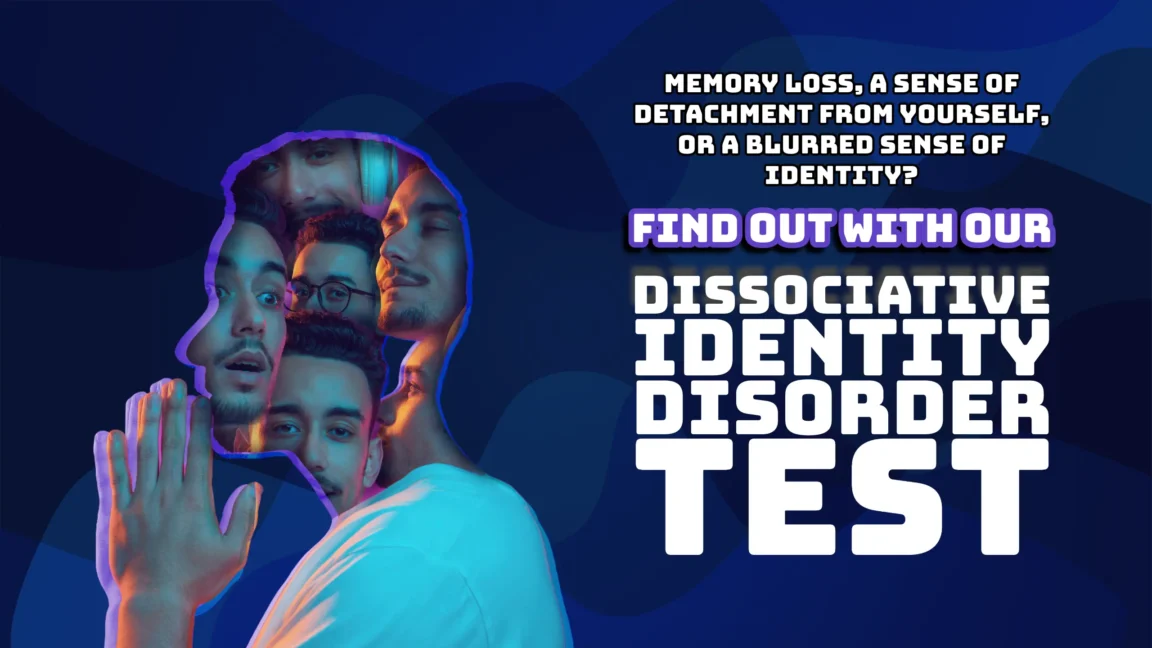Navigating the complex terrain of mental health requires sensitivity and precision, especially when discussing conditions as nuanced as Dissociative Identity Disorder (DID), formerly known as Multiple Personality Disorder or Split Personality Disorder. If you’re exploring the possibility of DID or seeking clarity on your mental health landscape, an initial step could be a Dissociative Identity Disorder Test or Split Personality Disorder Test. However, it’s crucial to understand the role of such assessments and the broader context of DID.
Understanding Dissociative Identity Disorder
Dissociative Identity Disorder is a complex psychological condition characterized by the presence of two or more distinct personality states or identities within a single individual. These distinct identities may have their names, ages, histories, and characteristics. DID is often a result of severe trauma during early childhood, usually extreme, repetitive physical, sexual, or emotional abuse.
The Role of the Dissociative Identity Disorder Test
Online assessments or quizzes, like ours, can serve as preliminary tools for individuals to better understand their symptoms. These tests often inquire about experiences of dissociation, memory lapses, a sense of detachment from oneself, and the presence of multiple identities.
It’s essential to approach the quiz with caution, as they are not a diagnostic tool but rather a screening instrument that can highlight potential symptoms of DID. Only a qualified mental health professional can diagnose DID, typically through comprehensive psychiatric assessments, interviews, and a detailed exploration of an individual’s history.
What to Expect from a Dissociative Identity Disorder Test
A typical Dissociative Identity Disorder Test might include questions about:
- Experiencing different identities or personalities
- Time loss or unexplained gaps in memory
- Feelings of detachment or estrangement from oneself
- Observing oneself from an outside perspective, as if watching a movie
- Variations in skills and knowledge that seem to change unexpectedly
How the Quiz Works
(Enhanced Test Structure (Based on Carlson’s DES Update)
28 items, grouped into 3 empirically validated subscales (if you wish to expand later):
- Amnestic Dissociation – memory loss
- Depersonalization/Derealization – disconnection from self or reality
- Absorption/Imaginative Involvement – being absorbed in internal experiences
Scoring is assigned as follows:
- Never (0 points)
- Rarely (1 point)
- Sometimes (2 points)
- Often (3 points)
- Very Often (4 points)
Updated Scoring Categories (Clinically Inspired)
| Score Range | Category | Description |
|---|---|---|
| 0–28 | Low Dissociation | Normal variation in attention/memory; non-clinical |
| 29–56 | Moderate Dissociation | Possibly trauma-linked dissociation; warrants monitoring |
| 57–112 | High Dissociation | Likely clinical dissociation; should be professionally evaluated |
These match the suggested interpretation from Carlson’s research (patients with DID often score above 60–70 on the full scale).
Is This Quiz Accurate?
This test is modeled on the Dissociative Experiences Scale II (DES-II)—a widely used psychological tool developed by Dr. Eve Bernstein Carlson and Dr. Frank W. Putnam. It’s not a diagnostic tool, but it’s reliable for screening purposes. Always follow up with a licensed mental health professional if your score is high.
Who Is This Quiz For?
- Individuals experiencing memory gaps, blackouts, or feeling disconnected from themselves
- Anyone with a history of trauma, especially in childhood
- People who suspect they may have symptoms of Dissociative Identity Disorder (DID) or a related condition
- Those curious about their dissociation levels
Expert Insight
Dr. Richard P. Kluft, an expert on Dissociative Identity Disorder, explains that DID is a serious mental health condition where a person has distinct personalities. He explains that DID comes from deep emotional trauma and requires special treatment focused on the patient. His advice helps in treating people with this challenging condition effectively.
Important Note:
It’s important to note that Dissociative Identity Disorder (DID) is a legitimate mental health condition recognized in the DSM-5-TR, and not merely a dramatic portrayal seen in media. If you suspect you or a loved one may have DID, reaching out to a mental health professional for a thorough evaluation is a critical first step. Remember, diagnosis and treatment should always be grounded in scientifically backed methods and conducted by trained professionals.
Additionally, this quiz should not be used as a substitute for a professional diagnosis. If your test shows you might have DID, it’s important to see a mental health expert for a full assessment.
Instructions:
Answer each question honestly based on your experiences. This quiz helps you understand your symptoms and identify when professional help is needed.
Disclaimer
Use this quiz solely for informational purposes, not as a tool for medical diagnosis. Please consult a qualified mental health professional for a proper diagnosis and treatment.
If you think a friend or family member shows signs of Dissociative Identity Disorder (DID), it’s important to act thoughtfully. DID involves having two or more distinct identities (separate identities) in one person, each with its own behavior and memory.
The quiz serves as an initial step to help you understand your experiences related to Dissociative Identity Disorder. Honest responses will help you gain insights and decide on the next steps in your mental health journey.
Try Other Related Mental Health Tests


